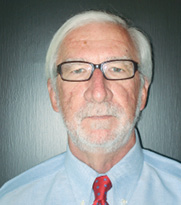While previous columns have addressed dealership culture and sales department climate, this article will attempt to address the importance of a dealership sales philosophy and its impact on the overall dealership performance.
A “philosophy” can be academically thought of as either a particular system of thought or doctrine, or as a set of basic principles or concepts. Pragmatically, however, a sales philosophy is nothing more than those guiding principles that bring the sales process to fruition.
One way of ascertaining an existing sales philosophy is by way of answering a series of questions that may include, but are not limited to the following.
1. Are you a profit leader or are you a market share leader?
2. Have you received, or would you like to receive, a plaque from your major supplier recognizing you as the top selling dealer for a given product line?
3. Is your bottom line profitability a function of your volume bonus?
4. If volume bonus was to stop tomorrow, would you be able to continue as a viable dealership?
5. Are you customer share driven or are you unit sales oriented?
6. Are you focused on wholegoods gross margin or are you focused on dealership absorption?
7. Is your used gross margin significantly higher than your new gross margin?
8. Does your used equipment turnover exceed 4?
9. Does your new equipment turnover exceed 3?
10. Are your used equipment sales at least 40% of your total equipment sales?
11. Is your “salespersonnel compensation expense as a percentage of wholegoods gross margin” less than 30%?
12. Do you permit salespersonnel to sit in the dealership?
13. Would you say that the overwhelming number of your wholegood sales is a function of value added selling or a manifestation of price?
14. Are your wholegood sales a result of customer demand or the result of dealership/salespersonnel marketing efforts?
Thirty years ago, at the end of President Carter’s malaise and the beginning of the agricultural industry meltdown, some of the first casualties in the equipment industry were those who a few years earlier, at the height of the boom years, had received plaques from their supplier for being the number one sellers of this product or that product. This recognition isn’t what it once was.
In 2001, two partners purchased three locations of a defunct 5 location business. During the next three years, they grew their business from $16 million to $63 million. When I was retained to ascertain why they had no cash, it was determined that they had a wholegoods sales mix of 85%, a used equipment turnover of 1.3 and a customer labor sales mix of 30%.
Compounding the problem even further was the fact that they were the number one dealer for two separate products that each had incredibly high failure rates, thereby increasing their unrecoverable warranties. Forget about their level of profitability, what this represents is a classic case of selling themselves into bankruptcy.
One integral part of the reorganization plan was to reduce their total sales to $38 million while increasing their used wholegoods sales mix from 22% to 40%. Incredibly, but not surprisingly, within six months, the regional sales manager of their primary supplier contacted me to ask if I could help him get said dealer to change their plan to include increasing their new equipment sales. When I responded that any increase in new equipment sales would put this undercapitalized, cash strapped dealer at risk, the response was that he/she was under incredible pressure to “meet the numbers.” To the dealer’s credit, they stayed the course and turned the dealership around within 12 months.
Flash forward to 2011. You have one manufacturer looking for 60% market share and telling their dealers that “there is no problem with used combines,” and another manufacturer stating that every one of their dealers should hire an additional two salesmen. Forget the fact that for both manufacturers their dealers’ wholegoods sale mix is too high and their used equipment turnover is too low. Just rush out and sell more new equipment so that the non-risk-taking bureaucrats that manage these companies can receive their bonuses.
Dealers interested in being in business for the long run must adopt a selling philosophy that is good for them. Yes, market share is important and should be a benchmark that is measured and managed.
But to rely solely on market share is, and will be, an egregious error. Managing your business so that the volume business will be the difference between success and failure is not managing your business at all. Receiving plaques for being the number one selling dealer is akin to receiving a “death penalty.”
Rather than being held hostage to market share, develop a business plan designed to maximize profitability and dealership cash flow. Within that business plan, adopt a sales philosophy that focuses on retaining field marketers committed to value added selling, customer share and equipment turnover. Such a plan will ensure a profitable future.







Post a comment
Report Abusive Comment